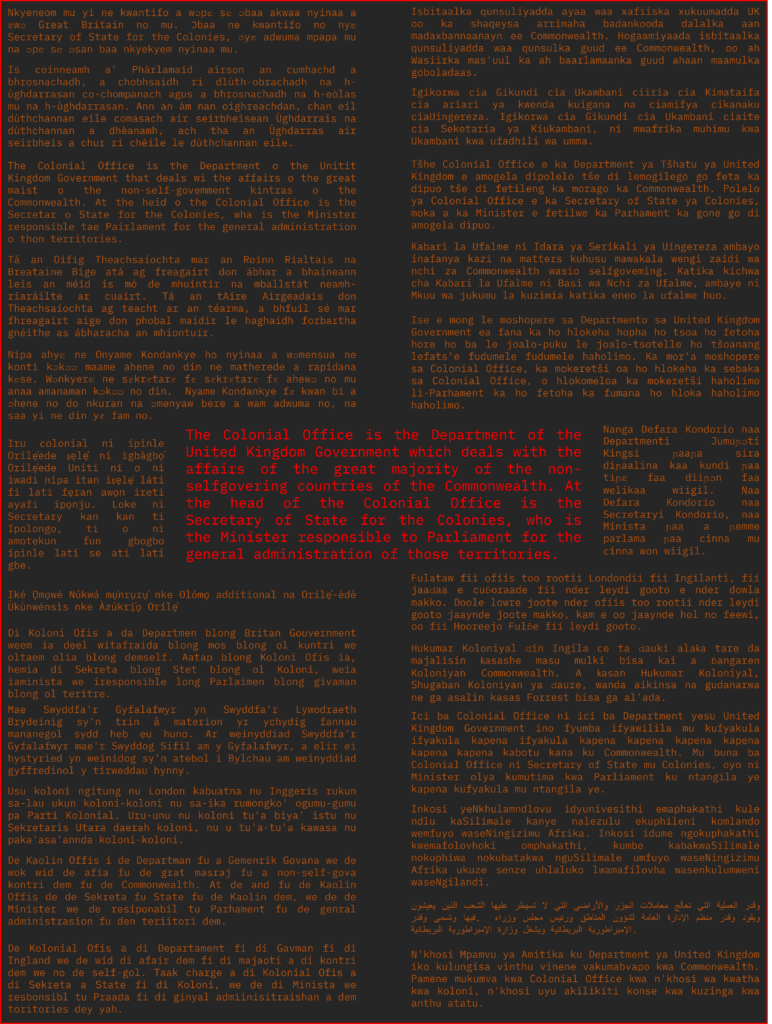Students taking the University of Glasgow’s course, run by Dr Yunhyong Kim, have been using Library datasets to learn about AI and creativity. Here is one example of their final coursework.
Examining British Colonialism through the lens of GPT-3.5 translation
Alexander Boestad, a student at the University of Glasgow, carried out an analysis of the Britain and UK Handbooks over time, with a particular focus on colonialism. He noticed that the collection was not translated into other languages, despite being published for overseas readers.
Focusing on a single paragraph from one of the editions, Alexander noted how the organisational structure described distances and removes agency from those peoples living under British colonial rule – which he likened to the role of generative AI in the removal of indigenous expertise.
“The Colonial Office is the Department of the United Kingdom Government which deals with the affairs of the great majority of the non-self-governing countries of the Commonwealth. At the head of the Colonial Office is the Secretary of State for the Colonies, who is the Minister responsible to Parliament for the general administration of those territories.”
Britain: An official handbook (1956)
Alexander used Chat GPT to translate these sentences into 24 languages, presented in poster format, below:

Alexander wrote: ‘My intention was to create a representation of Britain’s colonial relations through both formatting and text, with a purposefully uncomfortable viewing experience (low contrast for the translations, monospace/robotic font, weird line spacing and kerning of words). My thinking was that, in this case, an AI translation of inherently oppressive content to better suit the oppressed is oxymoronic in the sense that it creates a situation where actions that are inherently good and inclusive (wider localization of content) are at the same time exclusive’.
Find out more
More information about the course: AI for the Arts and Humanities
More about Alexander Boestad: Alexander Boestad on LinkedIn
More about Yunhyong Kim: Yunhyong Kim University of Glasgow staff profile
Which dataset did these projects use?
This project used Britain and UK Handbooks: Britain and UK Handbooks on the Data Foundry website